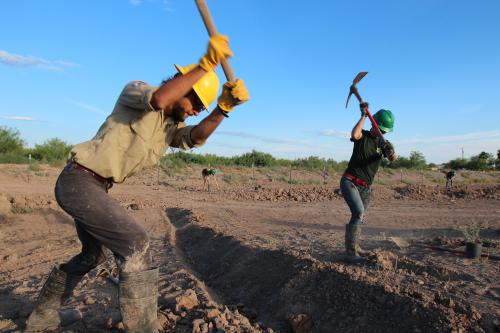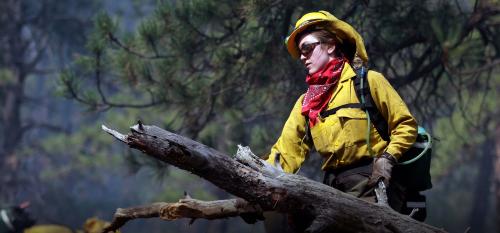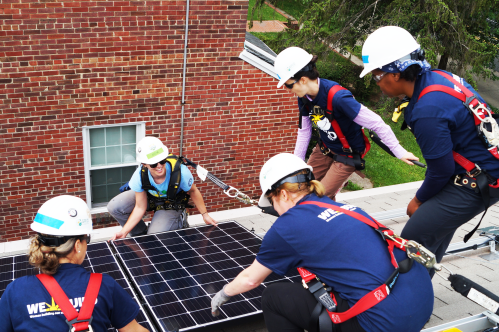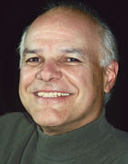National service, a time-honored American tradition, is currently getting some new attention.
In a recent, bipartisan effort, Senators Chris Coons (D-DE), Chris Van Hollen (D-MD), and other Democratic Senate colleagues, along with Republican colleague Tom Cole (R-OK) and other Democratic House members, introduced the Pandemic Response and Opportunity Through National Service Act on May 6, 2020.
If passed, the act would expand national service programs from 75,000 to 750,000 AmeriCorps opportunities per year, over a 3-year period. The bill calls for a partnership between AmeriCorps and the CDC to provide additional tracing and surge capacity as the country works to respond to and recover from the COVID-19 pandemic.
Many others in both the public and private sectors, both Democrats and Republicans, support using national service not only to help mitigate the coronavirus, but also to enhance disaster relief, provide assistance to hard-pressed first responders, supplement the staffing of many nonprofits serving the poor or unemployed as well as provide high schoolers an option to serve after graduation, at a time when colleges may not be fully open and entry-level jobs may be scarce.
Fortunately, from the National Commission on Military, National, and Public Service, we now have an excellent blueprint for how to expand all forms of service. The Commission was charged by Congress in 2017 to both conduct a review of the military selective service process, as well as consider ways to increase participation in military, national, and public service as one way to address national needs.
After two-and-a-half years of intensive research, public hearings, and conversations with Americans across the country, the Commission released its final report, Inspired to Serve. The report contains 164 recommendations for promoting and empowering Americans to serve their country.
Taken together, the recommendations offer a comprehensive blueprint to service for Americans, beginning with civic education and service learning, starting in kindergarten; national service opportunities so accessible and incentivized that service becomes a rite of passage for millions of young adults; and new and revitalized service options for adults of any age, background, or experience.
At a recent Brookings webinar event, the Commission’s chair, Joseph Heck, said that the Commission’s 11 nonpartisan members envision a nation in which service is a “common expectation and experience of all Americans”—where national service is the norm, rather than the exception.
As the report reveals, a strong, well-resourced and voluntary national service program can build more than just skills. It opens the door for bridge-building among Americans, giving people from different regions, races, religions and backgrounds the opportunity to come together for the common good, to help heal the sharp divides that so undermine America’s promise and potential.
Especially during these extraordinarily difficult economic times Americans must be made to feel that they have a stake in the long-term recovery and wellbeing of our country. They need to know that their lives are valuable and valued, that the work they do is meaningful, and that they have an opportunity to control what their futures look like.
The Commission challenges the nation to cultivate this culture of service. “We call on Congress and the President to invest in the American people and the security of the nation by taking action on this plan,” said Chairman Heck. “Now is the time—and this is the plan—to strengthen service and achieve our vision of every American, inspired and eager to serve.”
This should not be a hard sell. Polls show that 4 out of 5 Americans enthusiastically support national service. As for cost, an analysis of CNCS programs, such as City Year, Youth Build, among others, shows a benefit of $3.9 for every dollar invested in these programs. Given the trillions of dollars already allocated to save our economy, studies show that only a few billion dollars, for example, would enable local governments to ramp up their coronavirus tracing.
In just a few months, COVID-19 has unexpectedly laid waste to much of our society. A strong volunteer national service program could help to reopen the economy and jumpstart the rebuilding process.
The author/authors did not receive financial support from any firm or person for this article or from any firm or person with a financial or political interest in this article. Larry Checco is President of Checco Communications and Senior Adviser to ServeUSA.








Commentary
COVID-19 has made expanded national service more important than ever
May 15, 2020